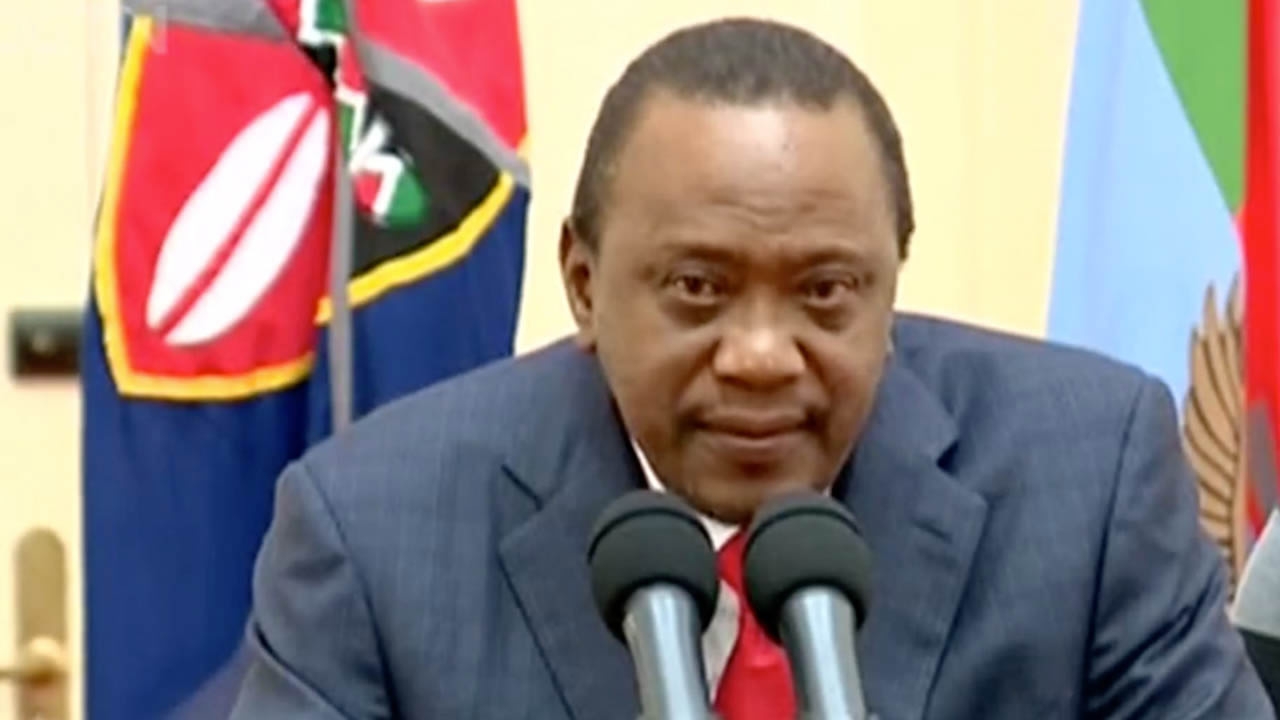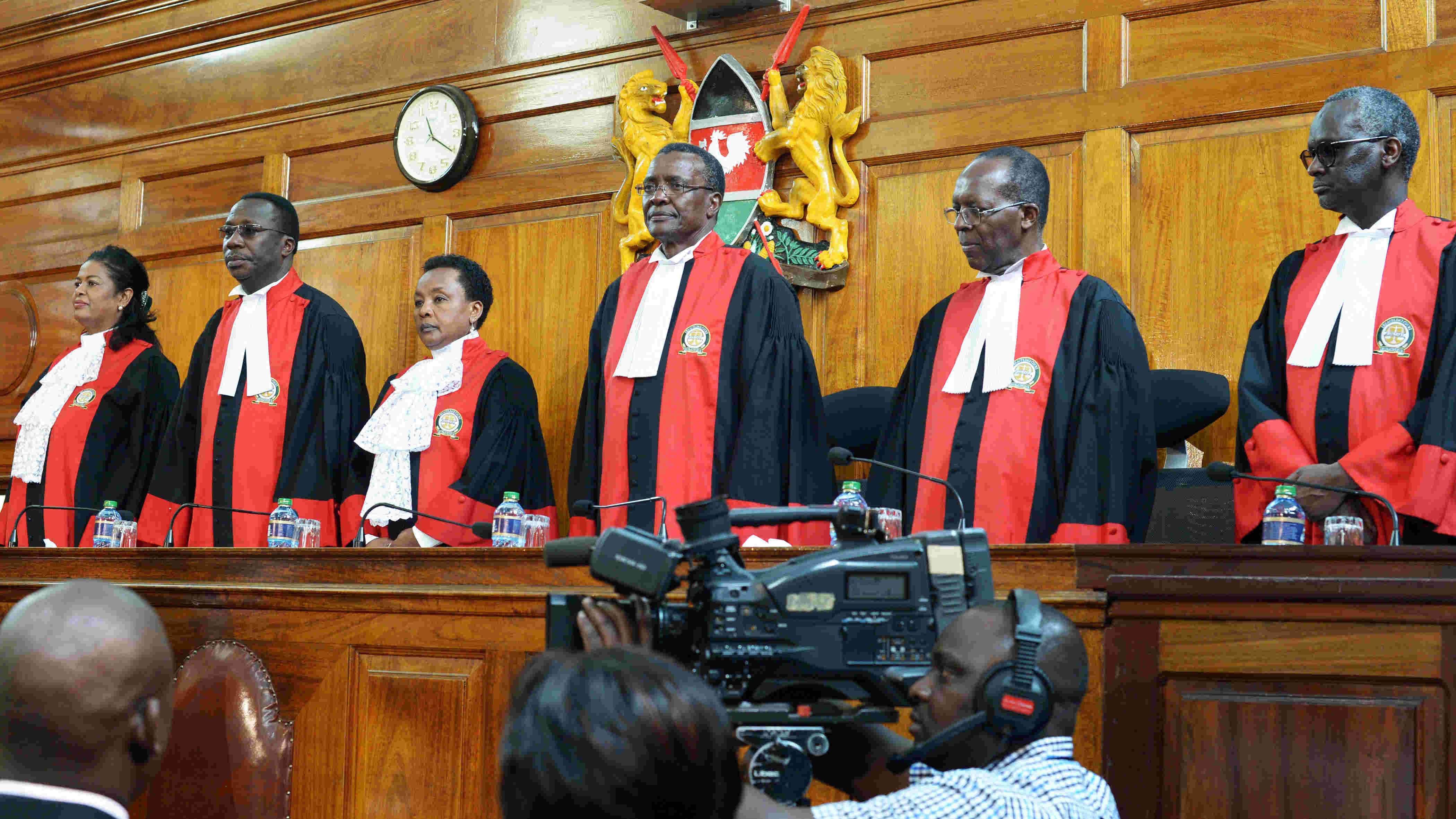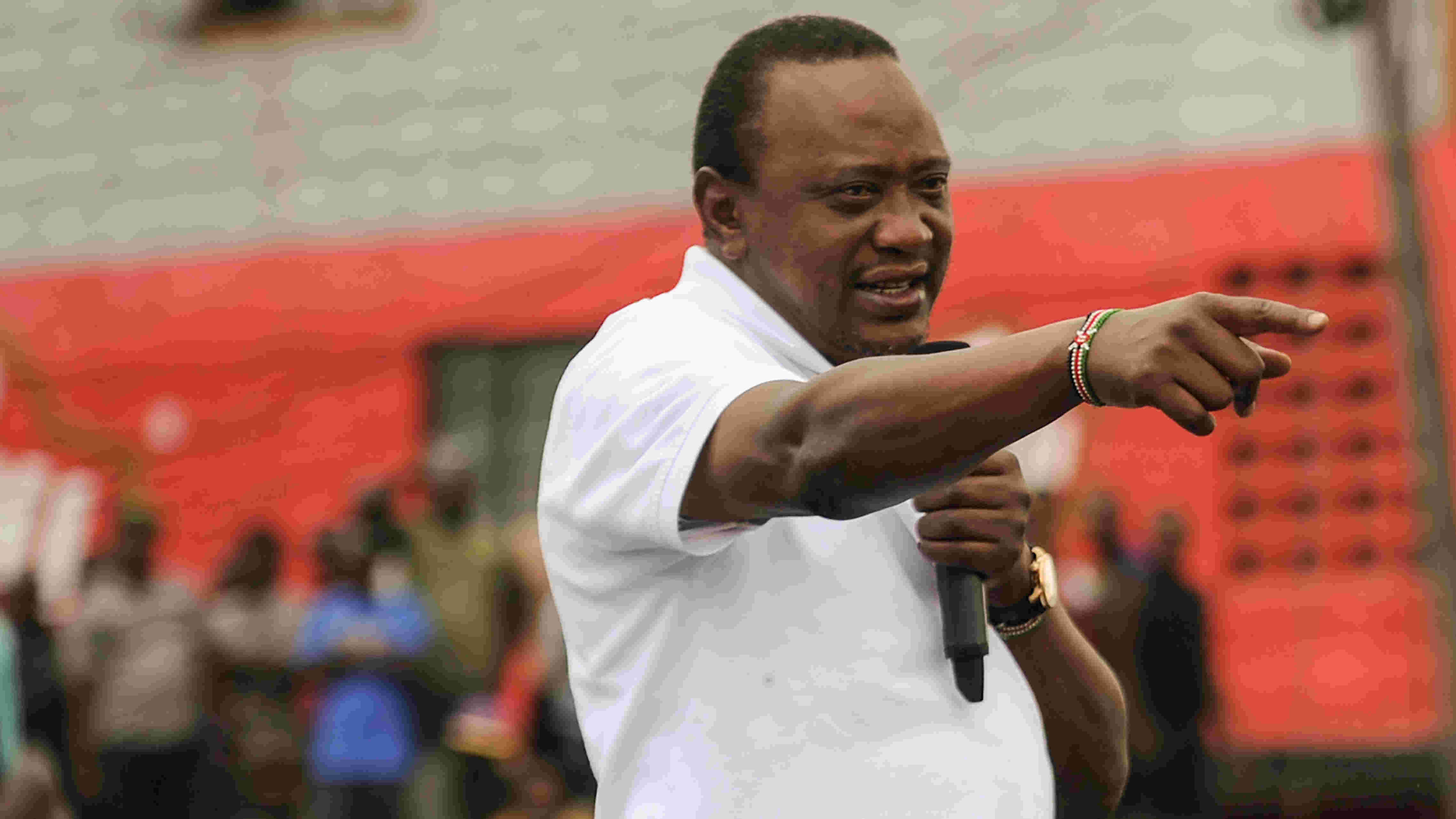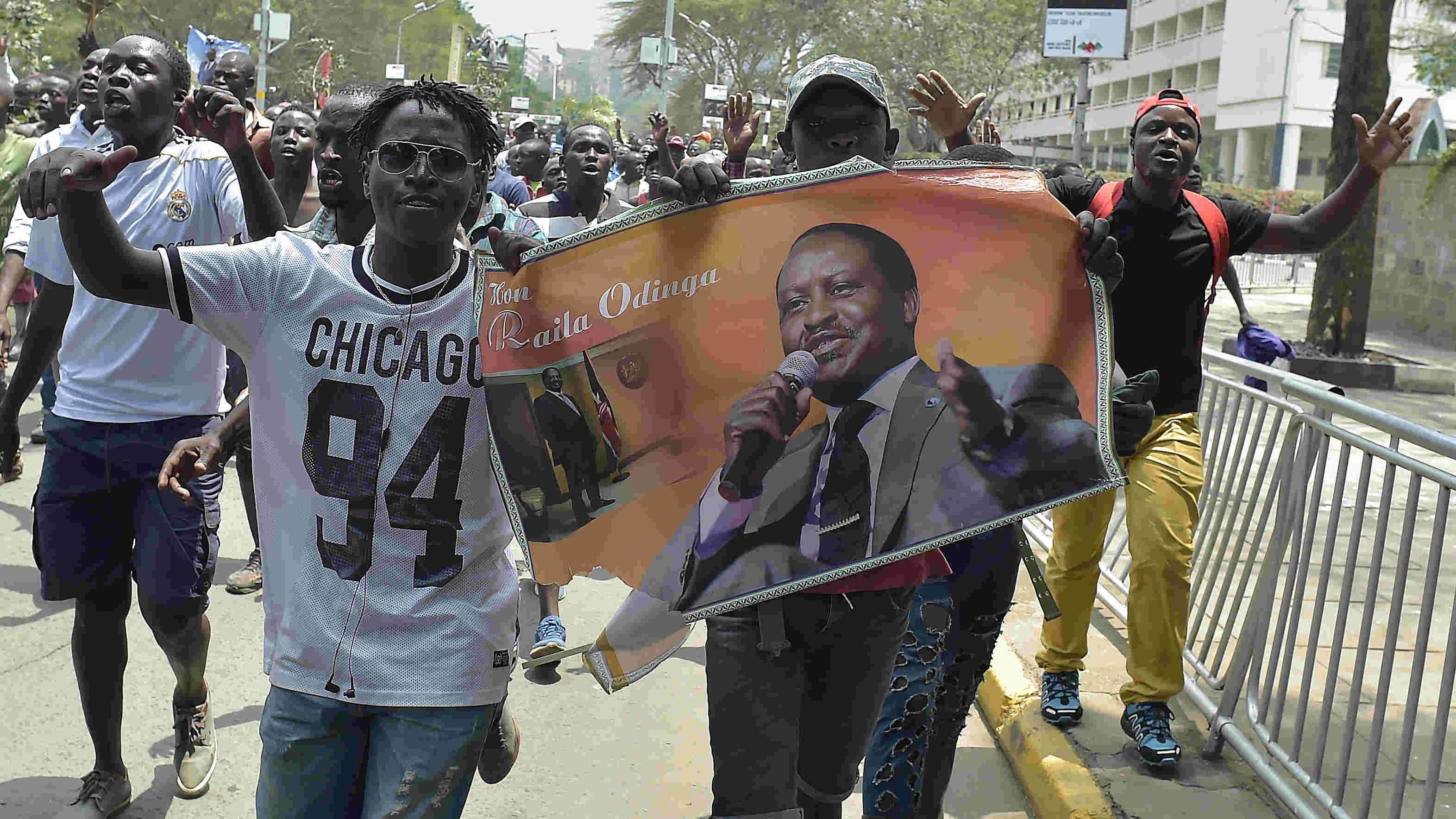
Politics
10:50, 03-Sep-2017
Fuming Kenyatta hits out at judiciary over poll cancellation
CGTN

Kenyan President Uhuru Kenyatta on Saturday lashed out at the judiciary for overturning his re-election and refused opposition demands to replace the tarnished polls commission.
While repeating his assertion that he respected the Supreme Court decision, Kenyatta set the stage for a bitter and tense re-run of the presidential election which must take place before October 31.
Chief Justice David Maraga on Friday declared Kenyatta's victory in August 8 polls "invalid, null and void", pointing to widespread irregularities in the electronic transmission of vote results.

Judges stand to deliver their verdict at the Supreme Court in Nairobi on Sept. 1, 2017, ordering a new presidential election within 60 days after cancelling the results of last month's poll. /AFP Photo
Judges stand to deliver their verdict at the Supreme Court in Nairobi on Sept. 1, 2017, ordering a new presidential election within 60 days after cancelling the results of last month's poll. /AFP Photo
"Every time we do something a judge comes out and places an injunction. It can't go on like this... there is a problem and we must fix it," said Kenyatta.
"I think those robes they wear make them think that they are more clever than the rest of us Kenyans," Kenyatta said of the Supreme Court judges, taking specific aim at Maraga.
"Maraga thinks he can overturn the will of the people. We shall show you... that the will of the people cannot be overturned by a few people."

Kenyan President Uhuru Kenyatta addresses a crowd on Sept. 1, 2017 in a Nairobi suburb, following an announcement by the country's Supreme Court. /AFP Photo
Kenyan President Uhuru Kenyatta addresses a crowd on Sept. 1, 2017 in a Nairobi suburb, following an announcement by the country's Supreme Court. /AFP Photo
On Friday he slammed the judges as "crooks," after weeks of urging the opposition to turn to the courts and "use whatever legal mechanisms that have been created via our wonderful constitution to express their dissatisfaction."
Law Society of Kenya president Isaac Okera condemned his remarks as "wholly inappropriate" and "ominous".
Fate of election officials
Meanwhile the fate of the electoral commission (IEBC) was shaping up as the next battle between Kenyatta and opposition leader Raila Odinga, heirs to a dynastic rivalry dating back to independence in 1963.
Maraga said the IEBC had failed to properly conduct the presidential election, and that there had been "irregularities and illegalities".
Odinga demanded the discredited commission be replaced, while IEBC chairman Wafula Chebukati said there would be some "internal changes" but refused to resign.

Supporters of Kenya's Opposition leader Raila Odinga celebrate as he leaves the Supreme Court in Nairobi, Sept. 1, 2017. /AFP Photo
Supporters of Kenya's Opposition leader Raila Odinga celebrate as he leaves the Supreme Court in Nairobi, Sept. 1, 2017. /AFP Photo
The previous commission, tarnished by a corruption scandal and poor handling of 2013 polls, was forced to stand down last October after widespread protests.
Kenyatta dismissed the option of a change at the IEBC, stating "we don't have time for any more reforms."
He accused Odinga of seeking to derail the election "to join the government through the back door" by forcing a coalition government.
"Let IEBC do their job, let them declare the date (of a new election) and Raila let us meet at the ballot."
'End of impunity'
It is the first time a presidential election result has been overturned in Africa. Similar court rulings have been seen in Austria, Haiti, Ukraine, Serbia and the Maldives.
Zimbabwe's opposition leader Morgan Tsvangirai on Saturday hailed the court decision in Kenya as a "step towards democracy".
"If it happened in Kenya it can as well happen in Zimbabwe," he said from a nation where its president Robert Mugabe has fought off challenges to his nearly 40-year rule.
And in the western African nation of Guinea, opposition leader Cellou Dalein Diallo similarly hailed the Kenyan court decision.
"This is a first and I hope this decision inspires other jurisdictions charged with handling contentious elections in Africa," he said.
Kenya's press hailed the ruling as a hard-fought victory for the rule of law, and a sign of a maturing democracy.
An editorial in the Nation newspaper said the ruling "signaled the end of the era of impunity that has painfully assailed this country for too long."
"Kenyans have struggled for decades to institutionalize the rule of law. We have fought, shed blood, lost lives and property in search of constitutional order," the paper said.
The press also raised prickly questions about the weeks to come.
"How (the IEBC) will conduct the next elections in the next 60 days is unimaginable," said the Nation.
The Standard said the IEBC must "clean up house".
"What Kenya needs most now is an election conducted in a legal, fair and transparent manner."
Source(s): AFP

SITEMAP
Copyright © 2018 CGTN. Beijing ICP prepared NO.16065310-3
Copyright © 2018 CGTN. Beijing ICP prepared NO.16065310-3